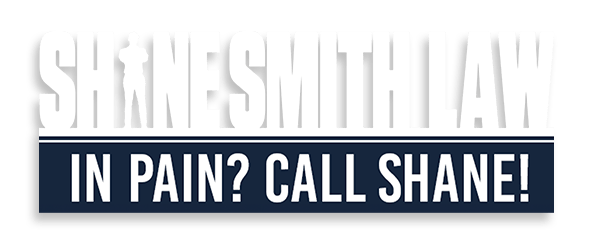
Our team at Shane Smith Law will review your case, free of charge, and explain your legal options.
Atlanta Head & Concussion Injury Lawyer
What is a Concussion?
Concussions are the most common type of mild traumatic brain injury, and the terms may be used interchangeably. A concussion affects normal brain function, and can occur as the result of a fall or blow to the head that causes the head and brain to move rapidly back and forth.
In recent years, the dangers of unrecognized concussions have been the focus of much media attention. Recent deaths among former professional athletes have called into question whether the current rules and regulation in professional sports are enough to protect people from serious injury. Both the National Hockey League and the National Football League have adopted new rules in an attempt to make playing their sports safer.
The danger does not only apply to professional athletes, however. Children playing on a playground, drivers, pedestrians, cyclists, and others are also at risk for concussions.
Shane Smith Law will aggressively pursue a brain injury case to get the victim fair compensation. Call our Atlanta head and concussion injury lawyer for a free consultation.
The Dangers of Concussions
Here are some of the key dangers associated with concussions:
Immediate Symptoms: Concussions often lead to a range of immediate symptoms, including headaches, dizziness, confusion, memory problems, and nausea. In some cases, individuals may lose consciousness, but this is not always the case. These symptoms can vary in severity and duration.
Post-Concussion Syndrome: Some people experience lingering symptoms for weeks or even months after the initial injury. This is known as post-concussion syndrome (PCS). PCS symptoms may include persistent headaches, fatigue, irritability, difficulty concentrating, and changes in mood or behavior.
Second Impact Syndrome: Suffering a second concussion before the first one has fully healed can lead to a rare but potentially life-threatening condition known as second impact syndrome. It can result in rapid brain swelling, increased intracranial pressure, and even death. This is why it's crucial to allow adequate time for recovery after a concussion.
Long-Term Cognitive and Emotional Effects: Multiple concussions over time, especially without proper management and rest, can contribute to long-term cognitive impairments. Some individuals may develop chronic traumatic encephalopathy (CTE), a degenerative brain disease associated with repetitive head trauma. CTE can lead to memory loss, depression, mood swings, and other cognitive and emotional disturbances.
Increased Risk of Future Injuries: Concussions can make individuals more susceptible to future brain injuries, even from less severe impacts. This is because the brain becomes more vulnerable after a concussion, and subsequent injuries may have more severe consequences.
Physical Symptoms: Concussions can have physical repercussions beyond the immediate symptoms. These may include balance problems, sensitivity to light and noise, and sleep disturbances.
Psychological Impact: Concussions can also have a psychological impact, leading to anxiety and depression in some cases. The frustration and limitations imposed by concussion-related symptoms can take a toll on an individual's mental health.
Impaired Functionality: Depending on the severity of the concussion, individuals may experience impaired functionality in their daily lives. This can affect work, school, and personal relationships.
Children and Concussions
According to the Centers for Disease Control and Prevention, school age children are among the groups at greatest risk for concussion. Concussions can occur from a fall on a playground, hitting a head on a desk, falling down stairs, or any other number of activities that could result in a child or adolescent hitting his head.
The most at risk time for children to suffer from a concussion is during PE class, recess, or during school-sponsored sports programs.
In addition, because the symptoms of a concussion do not always present immediately, a child may receive a concussion at school and not show symptoms until her or she is at home, or vice versa. Because younger developing brains can be more seriously affected by concussions, it is important for adults to be able to recognize the symptoms and know when to contact a healthcare professional.
Signs and Symptoms of a Concussion
If you or someone you know has hit their end or been involved in an accident, it is possible that he or she has sustained a concussion. The following table details common signs and symptoms that are associated with concussion:
- Headache
- Blurry vision
- Nausea
- Drowsiness
- Sleeping more than normal
- Feeling “foggy”
- Loss of consciousness
- Problems with memory
- Nervousness
- Changes in personality
- Problems with balance
- Sensitivity to light and/or noise
- Ringing in the ears
- Being disoriented
If you suspect you or someone you know has a concussion, it is essential to seek medical attention promptly. Rest and appropriate management are critical for recovery and reducing the potential dangers associated with concussions.

-
Millions of Dollars Obtained
Our team is committed to obtaining the best possible result on your behalf. Whether your injury is small or big, we will not rest until we get the compensation you deserve.
Explore Our Results -
Committed to Providing Answers
We understand that this is a scary and confusing time. We have created a library of free resources that will allow you to start finding the answers and solutions to your most pressing questions.
Explore Our Library -
Focused on Your Recovery
We handle all aspects of Personal Injury throughout North Carolina, Georgia, South Carolina, and Ohio. If you have been injured, our team can help.
Explore How We Can Help

